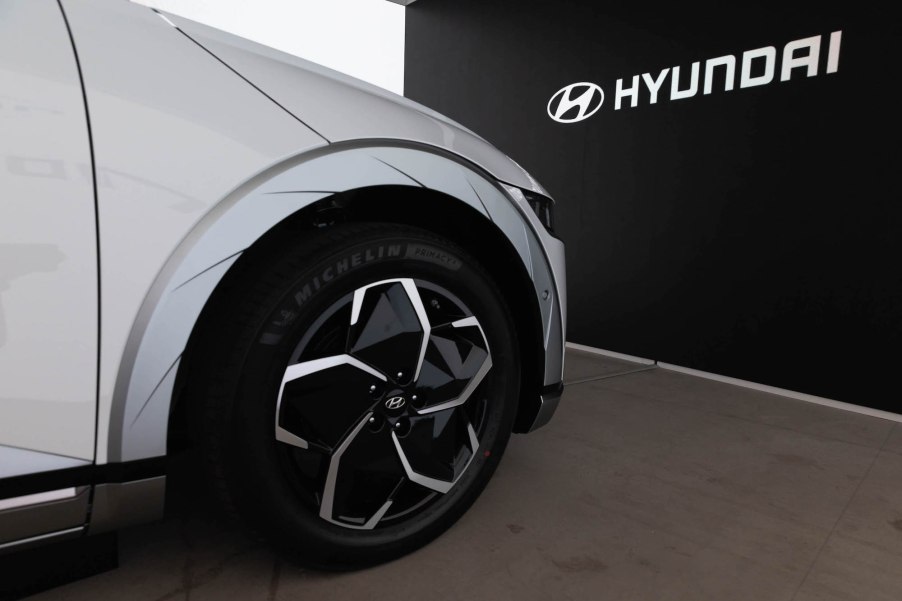
Kia, Hyundai, and Genesis Are All Owned by This Company
Hyundai has had a checkered past in the U.S. since its introduction in 1986. It was known for the cheap quality of its vehicles and poor reliability. Since then, Hyundai has become one of the largest global car manufacturers in the world.
In addition to the parent company, Hyundai also owns a few other popular brands on the market. Let’s take a look at Hyundai, Kia, and Genesis and discuss the history of the little car company that made a big comeback.
Hyundai’s sister brands

Hyundai Motor Group is a South Korean-based automaker. Hyundai is under the umbrella of Hyundai Motor Group, along with Genesis and Kia. Hyundai Genesis is the luxury arm of Hyundai, and Kia was acquired after a bidding war with Ford.
Genesis was only introduced in 2003 as a luxury concept vehicle for Hyundai. Four years later, in 2007, the first Genesis model was introduced into the lineup. In 2013, the second generation Genesis was released. However, the brand has hit the ground running with the addition of its first EV, the GV60.
South Korean automaker Kia Motor Corporation is also known as Kia Automobile or simply KIA. According to Autowise, the Asian financial crisis led to Kia’s bankruptcy by 1997. Just one year later, Hyundai and Kia decided to diversify its product lines by forming a joint venture. In the deal, Hyundai received 51% of Kia. Hyundai beat out Ford Motor Company in the bidding to make this deal, which had a previous interest in the company since 1986.
After Hyundai Motor Corporation, it is the second-largest manufacturer in the nation, with its headquarters in Seoul. They sold 3.3 million vehicles globally in 2015. They were a portion of the Hyundai Company’s holdings by the end of 2015. In exchange, Kia owns a small portion of more than 20 Hyundai subsidiaries.
A history of Hyundai
In 1947, Hyundai Engineering and Construction Co. was established by Chung Ju-Yung. In 1986, Hyundai offered the subcompact Excel model for sale in the United States. Few Americans at the time were familiar with Hyundai or its products. Since then, Hyundai has upgraded and expanded its product lineup in the United States, and it now represents more than 2% of the domestic auto market.
According to Statista, Hyundai Motor Company sold the most vehicles in the North American region in 2020, with more than 810,000 vehicles sold, and Hyundai sold a total of approximately 2.96 million vehicles globally.
What the future holds for Hyundai
Car and Driver report that Hyundai plans to introduce 11 new electric vehicles by 2030, one of which will be in a market segment in which it does not currently operate. They have not yet announced which market segment that will be. The Hyundai Ioniq 5 and the Kia EV6 are the first EVs produced completely new from the ground up.
By 2030, Genesis will have added six new models, including two cars and four SUVs. With plans for two electric pickup trucks, Kia will sell 14 EVs by 2027. However, not all new EVs from Hyundai and Kia will be sold in the United States.
Even though Hyundai had a rocky start in the U.S., it quickly gained traction by reinventing itself as one of the biggest car manufacturers in North America just a few short decades later. Hyundai’s first venture into the EV space, the Ioniq 5, has been a favorite among EV enthusiasts, and it is only just getting started.


